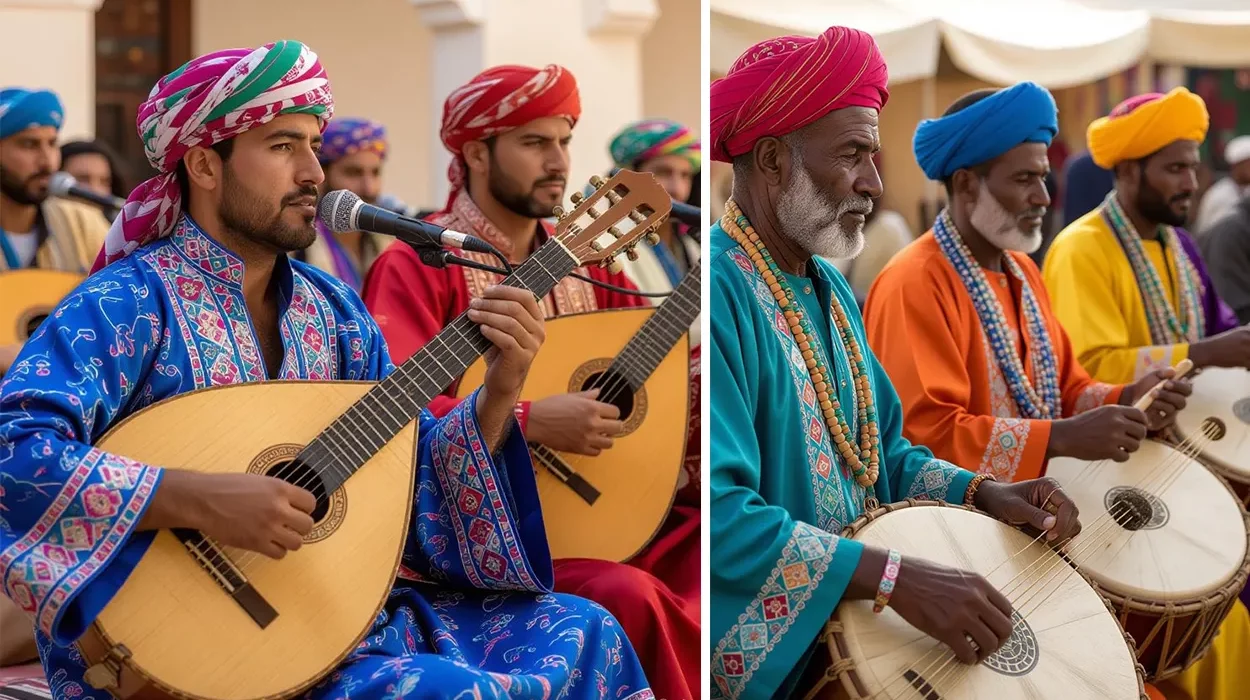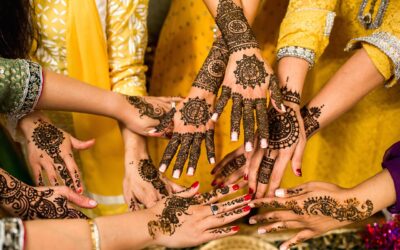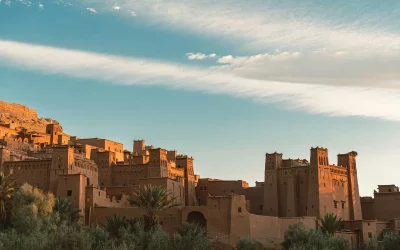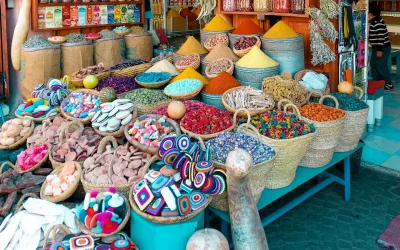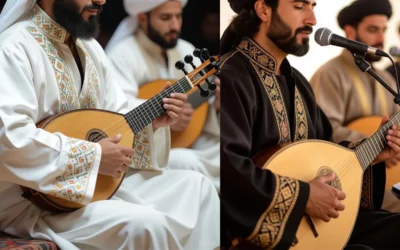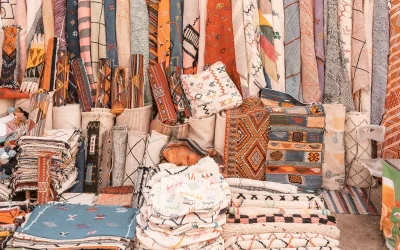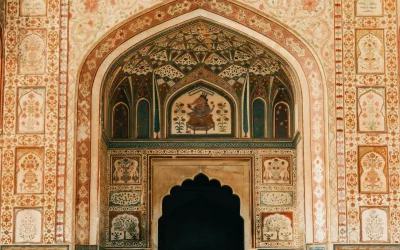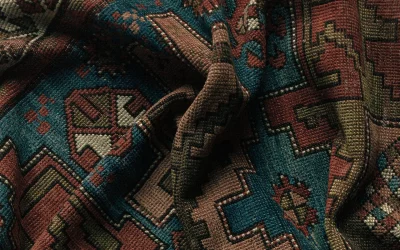From 19 to 21 June, Essaouira once again hosted the Gnaoua and World Music Festival, a veritable crossroads of cultures and sounds. More than 300,000 festival-goers responded to the call of this unique event, immersing themselves in music, dance and spirituality. During three days and three nights of festivities, the Moroccan city was transformed into a space suspended in time, entirely dedicated to the art of encounter and cultural fusion.
Gnaoua, a centuries-old tradition
Gnaoua music, a fusion of African and local traditions, has its roots in the history of African slaves in the 16th century. Listed as intangible cultural heritage by UNESCO, this music is characterised by the use of the guembri, a lute-drum, and qraqeb, metal castanets. Through these instruments, the Maâlems (grand masters of Gnaoua music) perpetuate rituals in which healing and the calling of spirits play a central role. Each note, each vibration, carries within it the soul of a people.
Since its creation in 1998, the Gnaoua Festival has played a key role in preserving and passing on this tradition. It has opened it up to the world while respecting its deep roots, transforming Essaouira into a place of encounters and discoveries, where each edition is a reinvention of Gnaoua music.
Fusion of genres and musical cross-pollination
Every year, the Gnaoua and World Music Festival is a space for musical experimentation where Gnaoua merges with sounds from around the world. This edition was no exception, with memorable performances such as that of Hamid El Kasri and the Bakalama Company, who created an intense fusion between Morocco and Senegal. Dhafer Youssef and Morad El Marjani offered the audience an exploration of mystical territories with striking depth, while the duo Houssam Gania and Marcus Gilmore presented a jazz-gnaoua fusion of rare intensity.
The festivities continued with explosive energy: Cimafunk and Khalid Sansi electrified the crowd with their Afro-Cuban music, and CKay brought together a cosmopolitan youth, full of energy and dance. In all, 350 artists from more than a dozen countries (Senegal, United States, Tunisia, France, Nigeria, Iraq, Cuba, Ivory Coast, Syria…) performed, accompanied by 40 Maâlems Gnaoua.
A festival beyond music
The Gnaoua and World Music Festival is not limited to music. It also embodies a place for intercultural exchange and reflection on global issues. Among the highlights, the Human Rights Forum allowed writers, researchers, filmmakers and artists to address the issue of ‘Human Mobility and Cultural Dynamics,’ an essential topic for understanding the links between migration, creativity and belonging.
In addition, the Berklee at Gnaoua Festival programme, in partnership with Berklee College of Music, offered 74 young musicians from 23 different countries the opportunity to participate in a creative residency, reinforcing the impact of Gnaoua music as a vehicle for dialogue and international solidarity.
Women’s empowerment at the heart of the Festival
The 26th edition of the Gnaoua Festival highlighted the rise of women in Gnaoua music, a tradition historically dominated by men. Artists such as Asma El Hamzaoui, a pioneer of the guembri, have redefined this art form for women with her group Bnat Timbouktou. By playing this instrument, once reserved for men, Asma embodies the revival of Gnaoua music.
Other talents, such as Kya Loum, Abir El Abed and Rokia Koné, also made their mark on this edition by bringing a modern and feminine touch. Kya Loum, with her multilingual songs, and Abir El Abed, who fully embraces her unique voice and appearance, deliver powerful messages of empowerment. Rokia Koné, for her part, champions gender equality through her songs. These artists have made music a powerful means of affirmation and freedom, proving that Gnaoua music is now an inclusive space, where female expression blends with traditional roots to shape a future without gender boundaries.
A promising future for Gnaoua music
The Gnaoua and World Music Festival is part of an effort to preserve and perpetuate Gnaoua music. Each year, it welcomes new talent and builds bridges between artists and audiences, ensuring that this living music continues to evolve. The UM6P Chair in Cultural Crossroads and Globalisation also provided a space for dialogue between researchers, thinkers and Maâlems, highlighting the importance of oral transmission.
The 2025 edition once again showed that Gnaoua music, far from being static, remains a dynamic art form in constant transformation. The Festival continues to break down cultural, geographical and generational barriers, offering a space for communion where music becomes a universal language.
Thus, the Essaouira Gnaoua Festival goes beyond the scope of a simple musical event: it is a testament to the resilience of a people, a celebration of the mixing of traditions and generations, and a meeting place for a world in search of meaning. The 27th edition will take place from 25 to 27 June 2026, promising to bring rhythms that know no boundaries to life.

